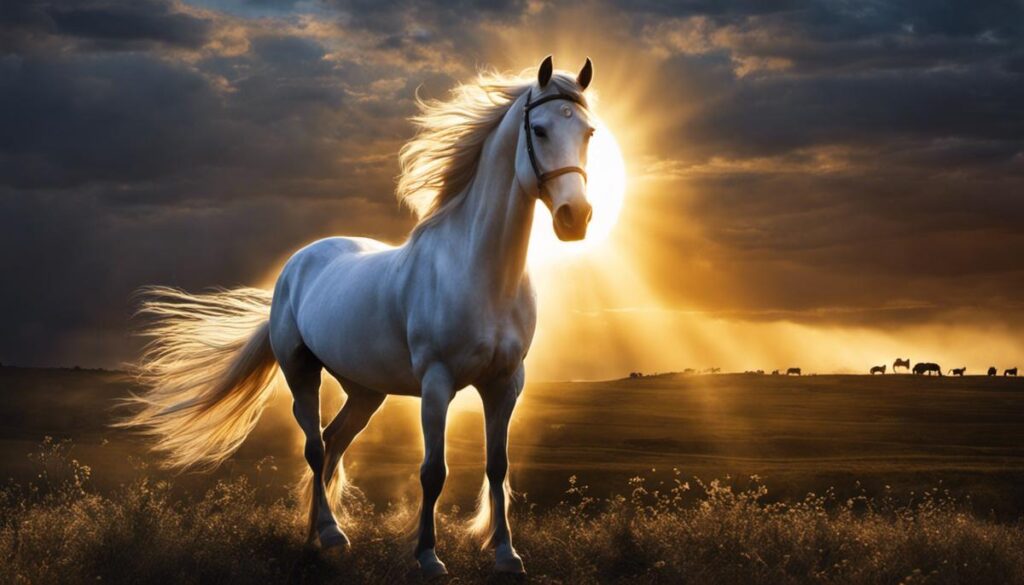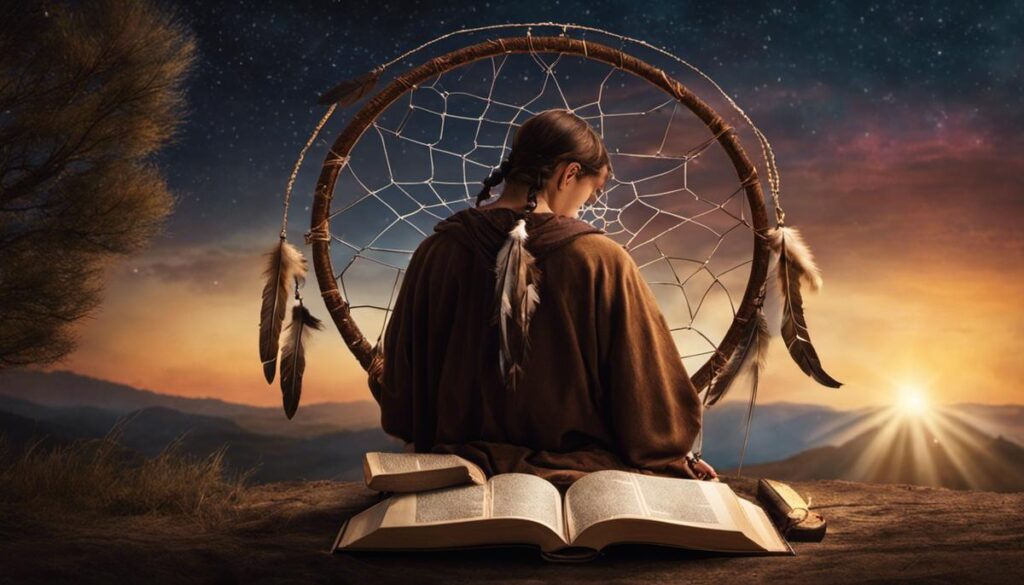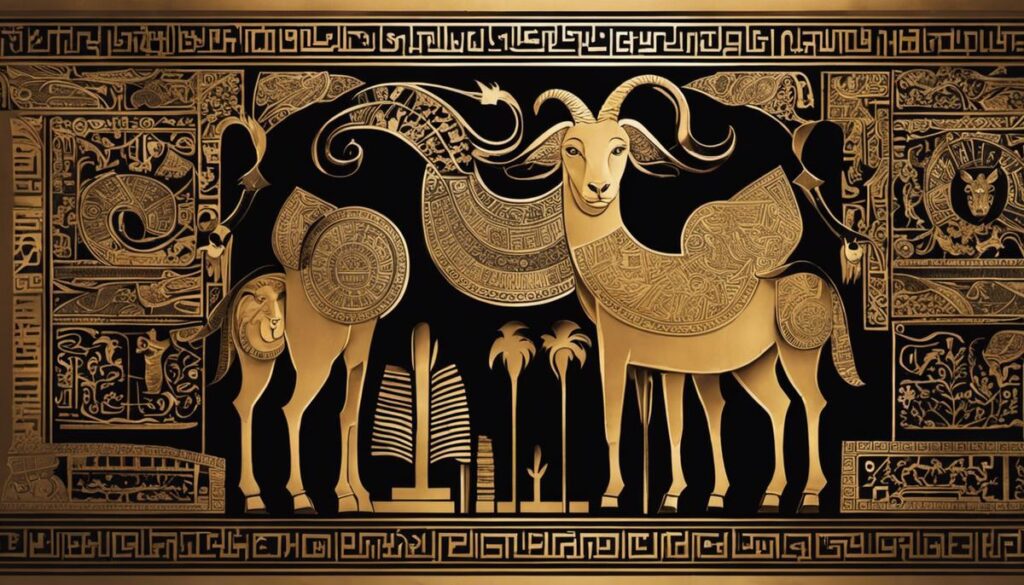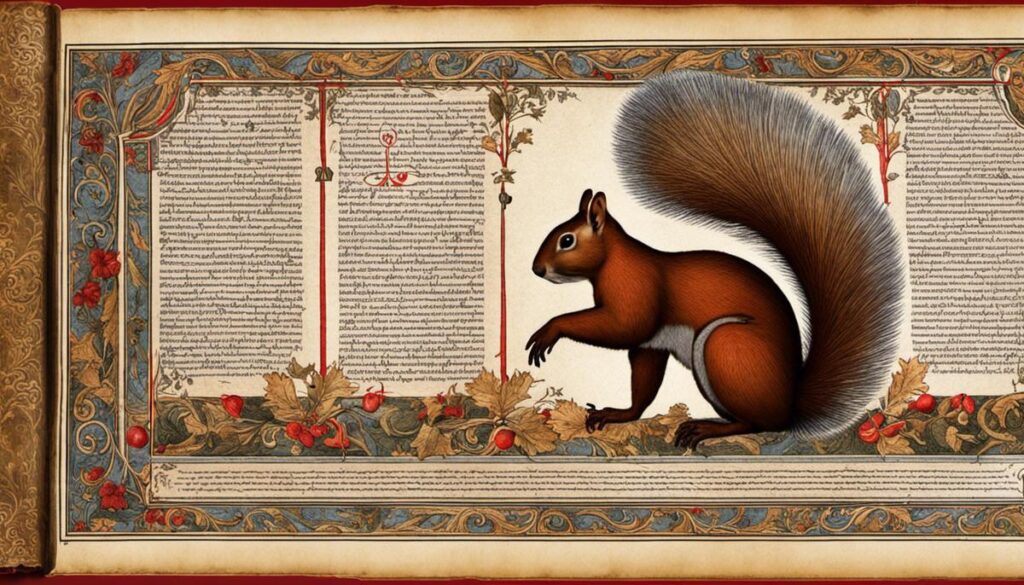The metaphor of horses has seeped its way into some of the most critical and transformative narratives of human civilization. Particularly in the biblical context, horses harness a diverse and comprehensive range of symbolisms and interpretations. This paper delves into such profound meanings, with a particular focus on their roles in dreams as outlined in the sacred texts. From denoting power, war, and judgment, to predominant figures in noteworthy biblical dreams, the horse emerges as an entity of significant symbolism. Furthermore, in the realm of dreams—a blend of psychological revelations and theological mysteries—the role and interpretation of horses venture into intriguing territories.
The Symbolism of Horses in Biblical Context
Significance of Horses within the Ancient Biblical Framework
Among the symbologies and radiant imageries weaved throughout the Bible, horses manifest a unique position. Profoundly rooted within diverse biblical themes, horses command a sense of awe in anthropological exploration and spiritual apprehension alike.
Horses, in many biblical accounts, are emblematic of power and war. They can be interpreted as an expression of earthly might, often demonstrating man’s propensity to rely on his own strength instead of divine influence. This is particularly prominent in the Old Testament, as evident in Psalms 20:7 and Psalms 33:17, where both scriptures allude to the folly of trusting in horses for salvation.
In contrast, horses are also incorporated into biblical narratives as facets of divine intervention. They are depicted as agents of God’s wrath and retribution, especially observable in Revelations 6, which paints a vivid picture of the Four Horsemen. This manifests the divine power that exceeds mere patriarchal strength, reflecting a force that shapes socio-religious dynamics beyond human understanding.
Another layer of biblical horse symbolism alludes to their role in royal splendor and material wealth. Solomon’s grandeur is described in 1 Kings 10:26 – divine blessings transformed into worldly prosperity, realized through the acquisition of horses. However, this representation also muddles with messages of caution about the human tendency towards excessive pride and dependence on material wealth, warning of the spiritual degeneration that may root from such pursuits.
Interestingly, the Bible also presents horses as symbolic of wisdom and counsel, as observed in Job 39. Here, God discourses about the physical prowess and regal bearing of horses as a rhetorical challenge to Job, highlighting the limited extent of human understanding compared to the divine omniscience.
Furthermore, horses play pivotal roles in eschatological scenes, woven intricately into biblical apocalyptic discourse. Revelations 19:11-14 portrays horses from heaven, ridden by Faithful and True, the armies of heaven, and He who judges justly. Horses metamorphose into apocalyptic symbols, allies of a divinely guided fate, suggesting a cosmic struggle exceeding mere human comprehension.
In summary, the versatility in the symbolism of horses within the biblical framework reflects a mélange of socio-religious philosophies and theological constructs, with layers of meanings that echo across books, chapters, and verses. Bridging human earthly existence and divine spiritual principles, horses turn into metaphorical vehicles carrying rich undertones of power, wealth, wisdom, and eschatology.
As fascinating as the world of biblical equine symbolism is, we should tread lightly and interpret judiciously. The cultural context of biblical times heavily informs these narratives. What holds resonance in biblical antiquity may not necessarily translate directly to our current societal lexicon. Hence, understanding these symbols within their original cultural and historical context is an academic imperative, pushing the boundaries of continual research and interpretation in this intricate field of study.
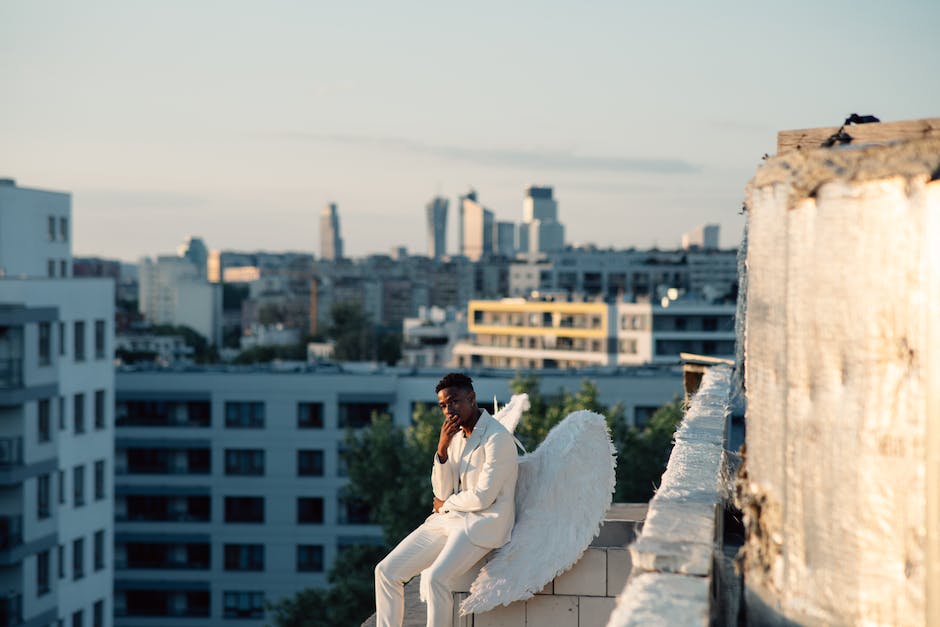
Various Horse-Related Dream Scenarios
Delving deeper into the correlation between equine dream scenarios and biblical references, a striking and noteworthy area to dissect is the scenario of horses and chariots. This is particularly common, inspired by visions described in both the Old and New Testaments. In the Book of Exodus, the Pharaoh’s chariots pursued the fleeing Israelites, signifying oppression and mortal danger. Conversely, passages from 2 Kings illustrate chariots of fire representing divine protection and deliverance. Hence, chariot-related dreams can vary widely in connotation, ranging from imminent threat to divine salvation.
Turning to lone horses, often depicted as wild or unbridled in dreams, they offer an intriguing correlation to the Book of Job. These dreams may encompass a sense of fear or awe, reflecting the raw power and majesty commonly associated with horses both biblically and culturally. In Job 39:19-25, God uses the horse as a symbol for strength and fearlessness, describing it as “laughing at fear, and not turning away from the sword.” Precisely, this places the horse as a potent reminder of the God-created, awe-inspiring vigor innate to the natural world.
A less commonplace, yet profoundly nuanced scenario involves dreaming of white horses specifically. This potentially traces roots to Revelation 19:11 in which a white horse appears as a harbinger of justice and truth, ridden by a figure commonly interpreted as Jesus Christ. Projections of this symbolism into dreams may signify a call to righteousness or an impending revelation of truth.
Finally, a review of these common horse-related dream scenarios would be incomplete without recognition of the symbolism surrounding horsemen, commonly tied to the Four Horsemen of the Apocalypse chronicle in Revelation 6. Dreams with this theme may reflect concerns about significant change or upheaval. The Horsemen represent conquest, war, famine, and death, serving as vivid reminders of the transient and vulnerable nature of human existence.
Though biblical symbolism continues to wield significant influence in interpreting dreams, it’s important to highlight the subjective nature of dream analysis. Each individual’s experiences, beliefs, and personal associations play critical roles in deriving accurate and meaningful insights from their dreams. Thus, the aforementioned biblical correlations should be respected as potential interpretation frameworks, rather than rigid or universally applicable directives.
The dynamic nature of horses in biblical symbolism and modern dream interpretation illustrates the enduring fascination of humanity with these noble creatures, a testament to their significance in our collective consciousness. Indeed, this complexity in meaning reflects the multi-layered and dynamic fabric of both biblical literature and human psychology.
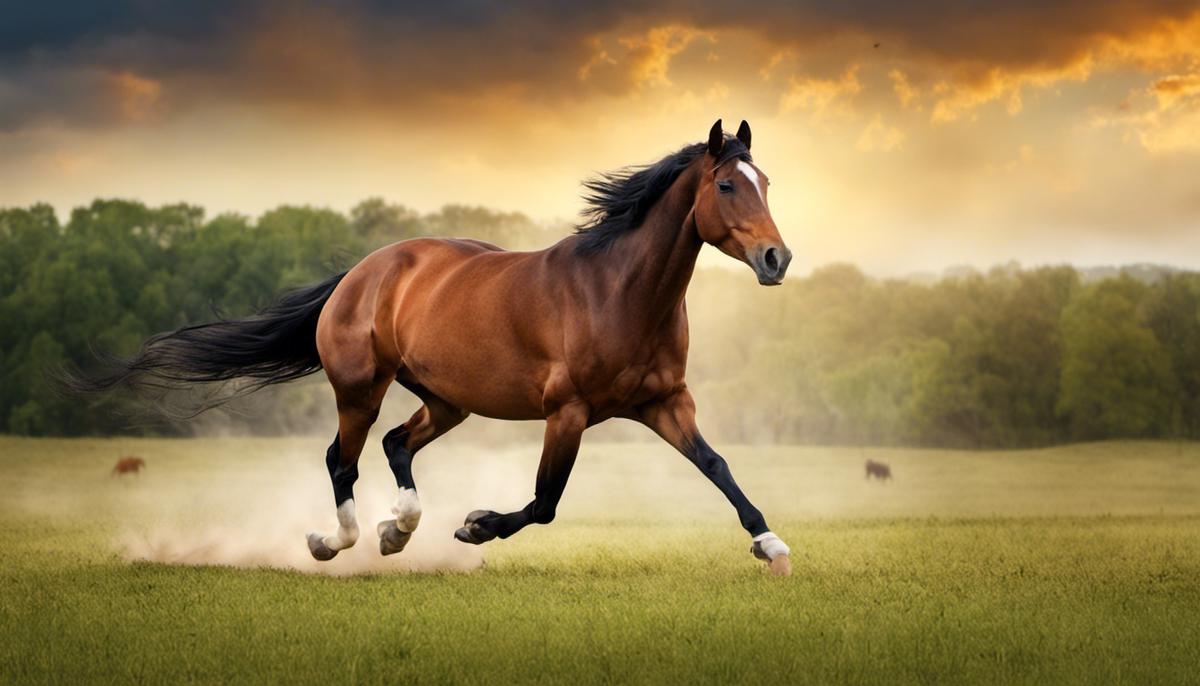
In-depth Exposition of Noteworthy Biblical Dreams Involving Horses
Horses in biblical dreams take on profound and complex interpretations, playing integral roles in communicating divine messages. Equine dream scenarios are renowned, with various instances scattered across biblical references, illustrating different aspects of prophetic communication.
One such example is found in biblical narratives involving chariots in dreams. To elucidate, consider the dreams interpreted by Joseph in the Book of Exodus and the spiritually instructive interaction between Elijah and his servant in 2 Kings. The chariots, often pulled by powerful horses, in these dreams symbolize divine protection and convey messages of hope, particularly in adversities. Interpretations of such dreams point to assurances from the divine realm, communicating that the power of God is superior to any earthly force and stands as an unyielding shield against adversarial circumstances.
Turning to the depiction of lone horses in dreams, a compelling correlation can be drawn to the Book of Job. The solitary horse presents a picture of courage and endurance, perhaps reflective of Job’s perseverance amidst suffering. As a symbol of resoluteness and steadfastness, the lone horse incorporates the theme of enduring faith in the face of life’s most challenging times.
Furthermore, the symbolism of white horses in dreams carries a particularly strong connection to Revelation 19:11. Here, a white horse signifies the victorious Christ, embodying themes of divine righteousness, justice, and triumph. The interpretive lens for such a dream, therefore, is seen as an affirmation of ultimate divine victory, encouraging persistent faith amidst tribulations.
The image of horsemen in dreams, on the other hand, often draws associations with the Four Horsemen of the Apocalypse, reflecting powerful end-time messages. Each horseman, identified by the color of their horse, connotes specific calamities that unfold in the end times. Therefore, dreams involving these horsemen may be viewed as solemn warnings or divine revelations about vital spiritual conditions and future scenarios.
It is noteworthy to mention the significance of subjective interpretation in dream analysis. Not all dream symbols carry the same meaning for every individual; personal, cultural, and situational factors can significantly shape the interpretation. Thus, in decoding horse-related dreams in the bible, a spectrum of interpretations can emerge, reflecting both the richness of biblical symbolism and the complexity of human psychology.
In conclusion, the enduring fascination with horses in biblical symbolism reflects not just their physical grandeur but also their profound spiritual implications. As agents of divine messages in dream scenarios, horses and their various representations can serve to deepen our spiritual understanding and nurture our bond with the divine realm.
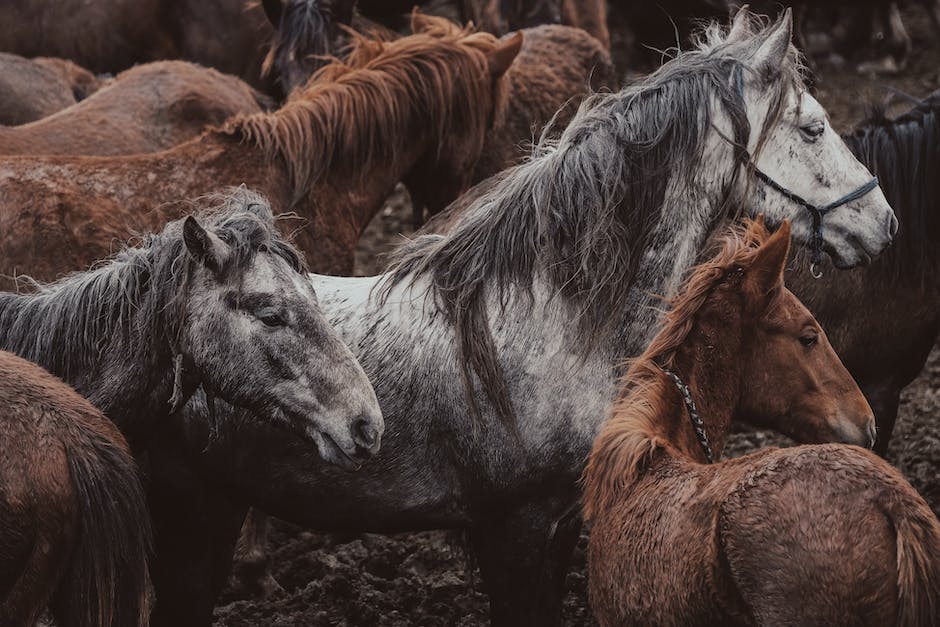
Psychological and Theological Blend of Interpreting Horse Dreams
When turning to psychology and its intricate relationships with theology in the context of horse dreams, it is essential to delve into the realm of psychoanalytic theory. Central to Freudian dream interpretation, horses often symbolize powerful urges and impulses, unlocking deeper subconscious structures. Dreams, Freud argued, are the gateway to unravelling our inner anxieties, desires and fears. Horses as dream symbols can be interpreted as representations of powerful unconscious drives, such as libido or Thanatos – the life and death instincts.
Jungian psychology offers another angle to this discourse. Carl Jung, the prominent Swiss psychiatrist, proposed the concept of ‘Collective Unconscious’, a repository of ancestral memories and archetypes common to all humanity. Dreams, according to Jung, are not merely personal, but draw from this reservoir of universal symbols and themes. The archetype of the ‘horse’ in Jung’s thought, is often associated with natural forces – both creative and destructive. It becomes significant, therefore, to consider these aspects when interpreting horse dreams through biblical lens.
At this juncture, the importance of a combined psychological-theological approach to deciphering horse dreams becomes magnified. If the symbolic value of horses in biblical texts is imbued with societal norms, historical conjectures, and spiritual nuances, so it is within the dreamer’s mind, embedded in the very fabric of their unconscious. Unraveling these meanings, thus, requires a deep understanding of both religious symbolism and psychological constructs.
An integrative interpretation from both angles, for instance, might regard dreams of horses as symbols of spiritual power and unconscious urges, simultaneously. While the Bible depicts horses as symbols of divine power and intervention, psychoanalytic interpretation may see it as a potent manifestation of often disrupted and suppressed id desires.
Horses dreamed in a destructive scenario might plausibly align with the biblical view of divine wrath or punishment and simultaneously signal the individual’s struggle with aggressive and death impulses hypothesized in Freudian psychoanalysis. Dreams featuring white horses could reflect personal spiritual aspirations drawn from Revelation 19:11 symbolism, while, psychologically, they could depict an individual’s pursuit of purity, innocence, or success.
As the interpretation of such dreams is highly subjective, it requires a careful analysis of the individual’s personal, cultural, and spiritual contexts, along with their subconscious mind’s mysteries. Dream interpretation becomes, thus, a dialogue between subjective mental landscapes and a broader objective framework of biblical symbolism.
The integration of theological and psychological approaches in interpreting horse dreams provides a profound, multi-layered understanding. This synergy marks an exciting evolution in the field and allows a more nuanced appreciation of biblical symbolism within the tapestry of human psyche. Thus, understanding horse dreams becomes not only an exploration of spiritual queries but a journey deep into one’s mental and spiritual cosmos.
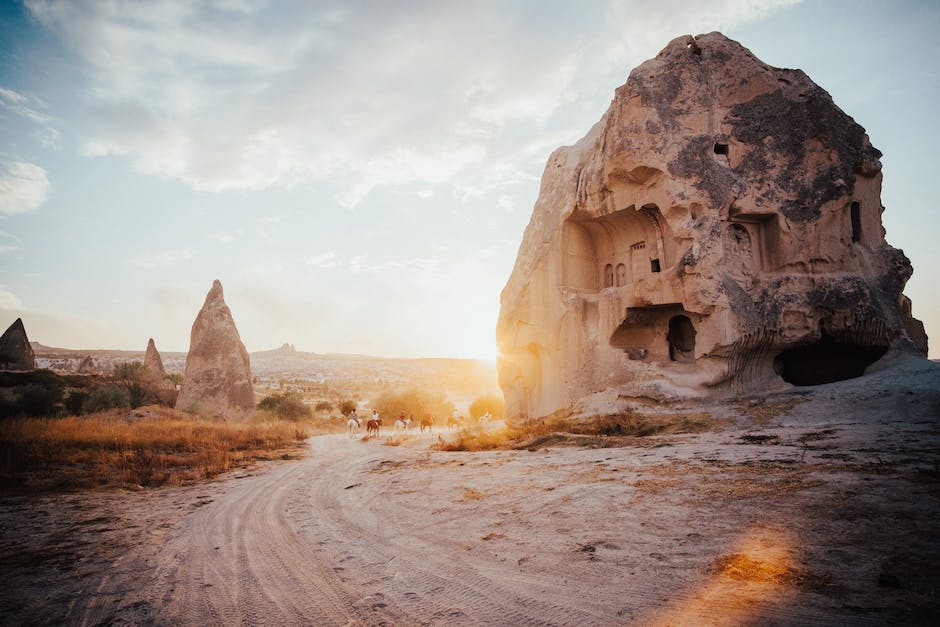
Through this exploration, we indeed see how horses, in both their physical and dream manifestations, take on such profound roles in biblical narratives. Their divine symbolism and the subsequent interpretations ignite enlightening discussions that span from power and judgement to empowering visions. Moreover, decoding horse-related dreams uncovers a blend of psychology and theology, amplifying the scope of understanding of these spiritual encounters. The narrative threads of the Old and New Testaments are hence enriched with horses painted in multifaceted shades of divinity and human cognition. Like the stirring gallop of a horse, these interpretations navigate through layers of human consciousness, fostering an enriched understanding of the spiritual essence enveloped in these dreams.

